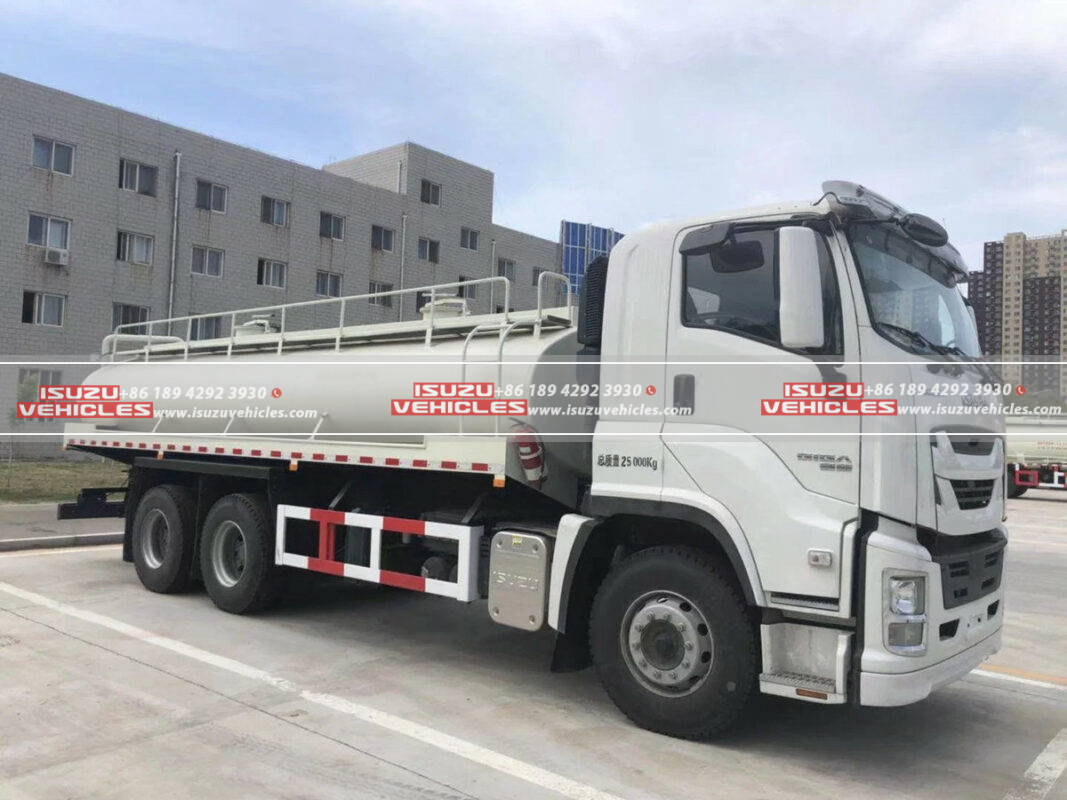The safe and efficient transportation of liquids—whether fuel, chemicals, water, or waste—relies on the integrity of tanker trucks. ISUZU tanker trucks are engineered to meet the rigorous demands of these tasks, combining durability, precision, and advanced safety features. However, their performance hinges on consistent maintenance practices that address wear, prevent leaks, and ensure compliance with regulatory standards. This article explores actionable strategies to prolong the lifespan of your tanker fleet, mitigate risks, and adapt to evolving industry requirements, while highlighting specialized care for variants like the ISUZU vacuum truck and ISUZU water sprinkler truck.
The Critical Role of Maintenance in Liquid Transport Safety
Tanker trucks operate in high-stakes environments where mechanical failures can lead to environmental disasters, financial losses, or legal repercussions. Preventive maintenance is not just a best practice—it’s a legal and ethical obligation. ISUZU tanker trucks, designed with reinforced steel tanks, anti-corrosion coatings, and pressure-rated valves, are built to withstand harsh conditions. Yet, even robust systems degrade over time due to factors like chemical exposure, temperature fluctuations, and road vibrations.
A well-maintained tanker fleet ensures the safe containment of hazardous materials, reduces downtime, and preserves operational efficiency. For instance, a minor leak in a fuel tanker can escalate into a fire hazard, while corrosion in a chemical carrier might compromise structural integrity. By adhering to a structured maintenance schedule, operators can identify vulnerabilities early, align with DOT regulations, and uphold their reputation for reliability.
Routine Maintenance Checklists for ISUZU Tanker Trucks
A proactive approach to maintenance involves daily, weekly, and monthly inspections tailored to the unique stresses of liquid transport. ISUZU tanker trucks thrive under regimens that prioritize both mechanical health and tank-specific care.
Daily Pre-Operation Inspections
Begin each day with a comprehensive walk-around. Check tire pressure and tread depth, as underinflated tires increase fuel consumption and risk blowouts during heavy loads. Inspect the truck’s undercarriage for signs of fluid leaks, paying close attention to hydraulic lines and brake systems. Test the tank’s pressure relief valves and emergency shut-off mechanisms to ensure they function correctly. For ISUZU vacuum trucks, verify the suction system’s seals and hoses for cracks, which could impair waste collection efficiency.
Monthly Deep Maintenance Protocols
Every 30 days, conduct a thorough evaluation of the tank’s interior and exterior. Use ultrasonic testing or visual inspections to detect thinning walls or pitting in the tank’s lining, common in vehicles transporting corrosive substances. Clean and lubricate the pump mechanisms, especially in ISUZU water sprinkler trucks, where sediment buildup can clog nozzles and reduce spray effectiveness. Replace air filters and inspect the exhaust system to maintain engine performance and emission compliance.
Specialized Care for Different Tanker Configurations
Not all tanker trucks face identical challenges. Maintenance strategies must adapt to the cargo type, operational environment, and vehicle design.
Maintaining ISUZU Vacuum Trucks for Waste Management
ISUZU vacuum trucks handle sludge, sewage, and industrial waste, exposing them to abrasive materials and corrosive gases. After each job, flush the tank and suction lines with water to remove residue that could accelerate wear. Inspect the vacuum pump’s vanes and bearings monthly, as particulate matter can cause premature failure. Apply anti-corrosion coatings to the tank’s interior and exterior, particularly in coastal regions where saltwater accelerates rust.
Optimizing ISUZU Water Sprinkler Trucks for Municipal Use
Vehicles like the ISUZU water sprinkler truck require unique attention to their spraying systems. Regularly clean filters and nozzles to prevent blockages from minerals or debris. Inspect water pumps for signs of cavitation, which can damage impellers and reduce pressure. During winter months, drain the tank and lines completely to avoid freeze-related cracks, and store the truck in a temperature-controlled facility if possible.
Addressing Common Challenges in Tanker Truck Operations
Even with diligent care, tanker trucks encounter operational hurdles that demand swift, informed responses.
Combating Corrosion in Hazardous Environments
Corrosion is the silent adversary of tanker trucks, particularly those transporting chemicals or operating in humid climates. Corrosion resistance begins with material selection—ISUZU tanks often use stainless steel or aluminum alloys—but requires ongoing effort. Apply sacrificial anodes to tank interiors to divert electrochemical degradation, and conduct biannual eddy current inspections to identify weak points before they breach.
Managing Pressure Fluctuations During Transport
Liquid sloshing during transit creates dynamic pressure shifts that strain tank walls and valves. Install baffles or compartmentalize tanks to minimize movement, reducing stress on seams and joints. For trucks carrying volatile liquids, ensure venting systems are unobstructed and calibrated to release excess pressure safely.
The Future of Tanker Truck Technology: Innovations by ISUZU
As sustainability and digitalization redefine transportation, ISUZU is integrating cutting-edge technologies to enhance safety, efficiency, and environmental stewardship.
Smart Sensors and Predictive Maintenance
Modern ISUZU tanker trucks are equipped with IoT-enabled sensors that monitor tank pressure, temperature, and fluid levels in real time. These systems alert operators to anomalies, such as a sudden drop in pressure indicating a leak, enabling immediate intervention. Predictive analytics can forecast component failures, allowing repairs during scheduled downtime rather than mid-operation.
Eco-Friendly Designs for Reduced Environmental Impact
ISUZU’s newer models emphasize sustainability, featuring lightweight composite tanks that reduce fuel consumption and hybrid powertrains that lower emissions. Innovations like solar-powered auxiliary systems for ISUZU water sprinkler trucks minimize reliance on diesel engines during stationary operations, aligning with global green initiatives.
By embracing rigorous maintenance routines, tailoring care to specific tanker configurations, and adopting emerging technologies, operators can ensure their ISUZU tanker trucks remain reliable, compliant, and ready to meet the demands of modern liquid transport. These efforts not only safeguard drivers and communities but also reinforce the critical role of tanker trucks in sustaining industries that keep the world moving.
